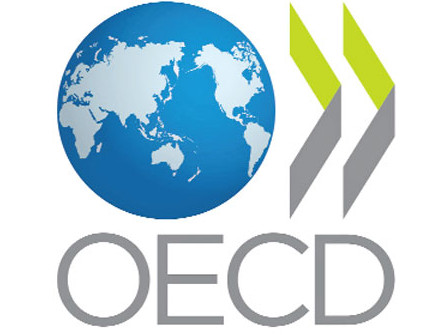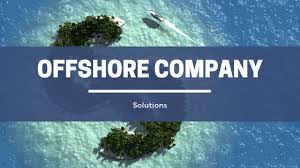Bank account without information exchange: This is how it’s done legally!
Bank account without information exchange: This is how it’s done legally!

Where you can keep your money without telling the tax authorities
The days of tax havens and anonymous bank accounts are over. The Common Reporting Standard (CRS) allows countries to exchange information about their citizens’ bank accounts. This means: forget about “unknown” Swiss accounts!
But don’t panic! There are still legal ways to diversify your finances and protect your privacy. In this article you will learn:
• In which countries you can open a bank account without information exchange
• What the CRS is and how it works
• How to deal with FATCA and other reporting obligations
• How to diversify your finances legally
Countries without information exchange:
As of June 2024:
• Armenia
• Botswana
• Dominican Republic
• Georgia
• Cambodia
• US State of Delaware
• North Macedonia
Please note: This list is subject to change at any time. Therefore, before opening an account, consult your bank or a tax expert.
What is the CRS?
The CRS is an international agreement that enables the automatic exchange of information on financial accounts between countries. The aim is to combat tax evasion and money laundering.
How does the CRS work?
Banks must ask their customers questions about their tax residency and report this information to the tax authorities. They then exchange the data with each other.
What is FATCA?
FATCA is a US law that requires foreign banks to report information about US citizens and green card holders to the US tax authority (IRS).
How can I get around CRS and FATCA?
There are various legal ways to get around CRS and FATCA. These include:
- Moving your residence to a country without a CRS agreement
- Opening a bank account in a country without a FATCA agreement
- Using a “nominee” structure
Warning: Circumventing CRS and FATCA can have legal consequences. Be sure to seek advice from a tax expert!
As of December 2023, according to the OECD, the following countries participate in the automatic exchange of information:
Albania, Andorra, Anguilla, Antigua and Barbuda, Argentina, Aruba, Australia, Austria, Azerbaijan, Bahamas, Bahrain, Barbados, Belgium, Belize, Bermuda, Brazil, British Virgin Islands, Brunei, Bulgaria, Canada, Cayman Islands, Chile, China, Colombia, Cook Islands, Costa Rica, Croatia, Curacao, Cyprus, Czech Republic, Denmark, Dominica, Ecuador, Estonia, Faroe Islands, Finland, France, Georgia, Germany, Ghana, Gibraltar, Greece, Greenland, Grenada, Guernsey, Hong Kong, Hungary, Iceland, India, Indonesia, Ireland, Isle of Man, Israel, Italy, Jamaica, Japan, Jersey, Jordan, Kazakhstan, Kenya, Korea, Kuwait, Latvia, Lebanon, Liberia, Liechtenstein, Lithuania, Luxembourg, Macau, Malaysia, Maldives, Malta, Marshall Islands, Mauritius, Mexico, Monaco, Montserrat, Montenegro, Morocco, Nauru, Netherlands, New Zealand, Nigeria, Niue, Norway, Oman, Pakistan, Panama, Peru, Poland, Portugal, Qatar, Romania, Russia, Rwanda, Saint Kitts and Nevis, Saint Lucia, Saint Vincent and the Grenadines, Samoa, San Marino, Saudi Arabia, Seychelles, Singapore, Sint Maarten, Slovakia, Slovenia, South Africa, Spain, Sweden, Switzerland, Thailand, Trinidad and Tobago, Turkey, Turks and Caicos Islands, Uganda, Ukraine, United Arab Emirates, United Kingdom, Uruguay, Vanuatu.
Basically, that’s the entire European Union, almost every country where citizenship is acquired by investment, most of the developed world, and almost everywhere else most people would think they would bank abroad.
Non-CRS Countries: An Updated Overview (as of June 2024)
The Organisation for Economic Co-operation and Development (OECD) maintains a list of over 110 countries that have committed to the automatic exchange of information (AEOI) under the Common Reporting Standard (CRS). The CRS aims to combat tax fraud and tax evasion by sharing financial information between countries.
However, there are still some countries that do not participate in the CRS. These countries are often referred to as “non-CRS countries”.
Some of the major non-CRS countries:
Armenia:
Armenia is considered an attractive country for banking, with competitive interest rates on local currencies and investment opportunities in various currencies. It is scheduled to join the CRS in 2025.
Cambodia:
Cambodia’s economy is on the rise and is increasingly attracting foreign investment. Local and international banks offer banking services in the country.
Dominican Republic:
Popular expat destination with a number of banks, including international and local institutions.
Guatemala:
Guatemala is emerging as an interesting location for expats and investors. Local banks dominate the market, while international players such as Citi are also present.
North Macedonia:
This Balkan country is characterized by low tax rates and a business-friendly environment. The banking system is developing positively, offering services from both local and European banks.
Philippines:
The Philippines is a popular expat destination with a well-developed banking sector. International and local banks offer banking services and competitive interest rates.
United States:
While the US is not a CRS participant, it does exchange financial information with other countries under the Foreign Account Tax Compliance Act (FATCA).
All in all, it boils down to this: The US does share some information, but on its own terms. The United States, particularly states like Delaware, has long been known as the “world’s largest tax haven.”
Points to consider:
Remember that the situation regarding non-CRS jurisdictions can change quickly, so it’s important to keep up to date with the latest developments.
De facto non-CRS jurisdictions: Grey areas and what they mean for you
While most countries have signed up to the global standard for automatic exchange of information (AEOI), there are some that are in something of a grey area. These countries, known as “de facto non-CRS jurisdictions,” have formally committed to the CRS but in practice demonstrate varying levels of willingness or ability to comply with the rules.
Reasons for reluctance:
The reasons for these countries’ reluctance are varied. Some fear losing attractiveness as tax havens, while others have concerns about data security or sovereignty.
Inconsistent implementation:
Regardless of the reasons, the unwillingness or ability of these countries to implement the CRS leads to inconsistencies. This can manifest itself in the form of incomplete or irregular data reporting, conflicting information or even a complete lack of reporting.
Impact on investors:
For investors and investors, these grey areas can pose additional challenges and risks. Uncertainty about the actual information flows can complicate decision-making and increase the risk of tax penalties.
What you can do:
Despite these challenges, there are ways to deal with de facto non-CRS countries. Here are some key points:
Due diligence: Conduct thorough due diligence before investing or opening a bank account in a de facto non-CRS country. Educate yourself on local laws, reporting requirements and the reputation of financial institutions.
Professional advice: Seek professional advice from experts in international finance, tax law and compliance. They can help you assess the risks and develop an appropriate strategy.
Comply with local laws: Strictly comply with all applicable laws and regulations, both domestic and foreign. Avoid any activities that could be construed as tax avoidance or evasion.
Conclusion:
While de facto non-CRS countries offer potential benefits, they also come with additional risks. Investors must carefully weigh these risks and take appropriate steps to protect their interests.
The days of anonymous bank accounts are over. However, there are still legal ways to diversify your finances and protect your privacy. With the right advice and strategy, you can protect your wealth while complying with all legal requirements.
GCI UNIT Worldwide: Your partner for global solutions
At GCI UNIT Worldwide, we understand the complexity of global finance and the challenges faced by high net worth individuals. We offer comprehensive advisory services and help you develop individual strategies to protect your wealth, obtain a second citizenship, identify profitable investment opportunities and optimize your tax and wealth situation.
We offer customized solutions tailored to your individual needs and goals.
Contact us today to learn more about how we can help you protect your wealth, optimize your investments and achieve your life goals.
Disclaimer:
This article is for informational purposes only and does not constitute legal advice. Please consult an attorney or tax advisor before making any decisions regarding your finances.
GCI UNIT Worldwide is a division of TCME-Group Worldwide, one of the world’s leading professional corporate investment and foreign trade advisory firms, with a total of 17 divisions in various countries and headquartered in Malaysia.
GCI-UNIT Worldwide is very much a hallmark of high-quality service and professional excellence in many different practice areas.
With our department we are a global provider of Citizenship by Investment Programs, Honorary Citizenship, Residency Programs and Citizenship Solution over Economic Ministry. We are able to identify rare and exceptional opportunities for our clients around the globe, mainly combining sound investments with the benefits of permanent residence, passport and citizenship in this country
Our legal team and specialist lawyers are well-known in the global immigration field and have over 25 years of experience in fast-track dual citizenship programs.
We currently work with more than 70 countries, advise governments and help find investors for their projects and focus on high-net-worth individuals (HNWI) or companies that have at least double-digit million assets.
In contrast to the classic agent who wants to sell you a second citizenship, we see ourselves as a “boutice” for a special clientele.
It’s not just a question of which citizenship program is best for you, how much it costs in the respective country, but what happens after that?
Are there good international schools there for your children?
What are the business opportunities in the respective country?
What about health care, how much taxes do you have to pay in the country?
Can I obtain a second citizenship in a country of my choice even though it does not offer an official citizenship program, but the government is interested in individuals or investors who provide a benefit to the country and are therefore granted citizenship!
We are at home in every country where we offer you a residence permit or citizenship, we work locally with our tax advisors and lawyers and of course we know the country and its mentality.
In our opinion, it is not enough to just want to sell citizenship based on books or dangerous half-knowledge.
Another specialty area of full-service consulting is investment opportunity and solutions in Europe, particularly in the Balkans, Africa, Asia, the United Arab Emirates, the Caribbean and the Pacific.
Since 2016, we have been, among other things, an important mentor for various business groups, economists, financial managers, investment advisors, business leaders, lawyers and notaries in the implementation and development of programs as:
YOUR CHANCE FOR A BETTER LIFE
Global Citizenship Investment (GCI) is a global provider of:
Citizenship programs
Honorary citizenship
Citizenship through investment
Residency program
Citizenship through repatriation
Granting of citizenship in the special interest of the Republic
Therefore, we are able to identify rare and exceptional opportunities for our clients around the globe, combining, above all, solid investments that lead to the benefits of permanent residence, passport and citizenship in this country.
In addition, we are in direct contact with several governments interested in appointing business people with a specific network as honorary consuls should a suitable candidate emerge.
If you would like to discuss your internationalization and diversification plans, book a consultation session* or email us at: [email protected]
GCI UNIT Worldwide Group
Level 33, Ilham Tower, 8 Jalan Binjai,
Kuala Lumpur 50450, Malaysia
www.citizenship-news.com
Telephone: +66 99091 8357 also for WhatsApp





